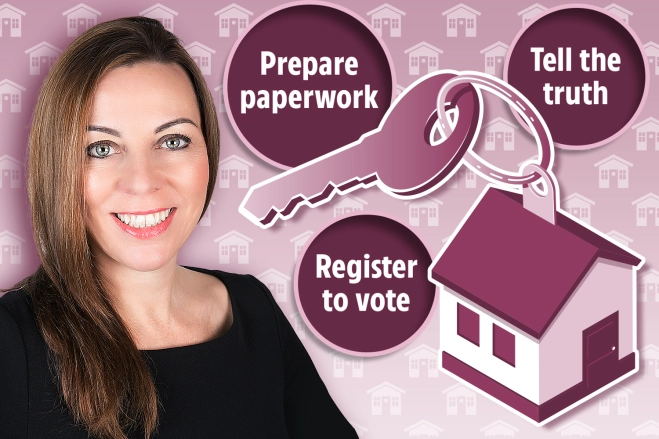Six common mistakes that could delay your application or even get it rejected
Article written by Holly Mead from The Sun
THERE’S an awful lot to think about when you’re buying a home – but making a mistake could delay your mortgage application or even see it refused.
Common errors could easily knock your homeownership plans off track.
It’s easy to make mistakes when you’re rushing to secure an offer on the house of your dreams.
But as house prices soar, some mortgage providers are getting stricter on who they will lend to – so it’s best to avoid any mistakes if you can.
Rachel Lummis, mortgage advisor at Xpress Mortgages, said there are plenty of things you might not realise can trip you up when applying for a mortgage.
“If you’re making a big lifestyle change, you’ve missed payments on a loan or credit card, or you’ve been applying for credit just before the mortgage process – even taking out a new mobile phone or credit card.
“All these things could mean your application is delayed or stop the provider from wanting to lend to you at all.”
She told The Sun the most common mistakes that buyers make – and some of them could mean your mortgage application gets refused.
Not preparing properly
Rachel said: “Before even looking at a property, you need to be mortgage ready and get your paperwork in order.
“This is the biggest cause of delays.”
Spend some time getting all your paperwork together: you’ll need at least three months of payslips, bank statements and household bills to prove your income, outgoings and address.
Rachel said: “Some lenders prefer you to have been employed for three or six months before they will approve you.”
Watch out for joke entries on bank statements – if a friend has transferred you cash with a comedic reference, it could stop a lender approving your application.
If you’re self-employed, you’ll need your accounts and tax return.
Not being registered to vote
Being on the electoral roll is important but often overlooked.
Registering to vote gives lenders proof of your address and how long you have lived at a property.
Rachel said: “Even if you are renting and don’t think you’ll be at a property long, you should always register to vote.
“Some lenders won’t accept you if you aren’t on the electoral roll.”
Registering is simple – just contact your local council.
Not checking your credit file
Check your credit score and particularly look out for any marks that might impact your ability to borrow.
All three of the main credit reference agencies – Equifax, Experian, and TransUnion – let you view your credit score for free. Although if you want to monitor it regularly, you’ll have to pay.
The better the score, the more chance you’ve got of being granted a mortgage.
You can build your score by using credit responsibly – that is to say, paying off your credit card in full each month and not maxing out your credit limit.
Rachel said: “If you have a poor credit history, don’t despair – there are still providers which will lend to you.”
Watch out for applying for credit in the run-up to your mortgage application too – providers want to see consistency and stability, and taking on extra debt could be a cause for concern.
Not having up-to-date ID
Checking your identification is in date and correct is crucial.
If you’ve changed your name, perhaps because you recently got married, your mortgage application will need to be in the same name as your ID documents.
Got a middle name? Make sure it appears on your passport and any other form of ID you’re submitting as proof of identity.
Rachel said: “If your driving licence has an old address on it, it won’t be valid.
“Recently married? Congratulations – but you won’t be able to use your new name unless you’ve updated your ID. Have your marriage certificate to hand too.”
Other lifestyle changes could impact your application too – for example if you’re buying a property in Scotland but your job is based in London, a lender might think this is a red flag.
Not providing proof of deposit
Before granting you a mortgage, a lender will want to know where your deposit is coming from.
This is because of money laundering rules – the provider needs to know that your cash is coming from a legit source.
If it’s from savings you’ve built up over time, you’ll need to show the evidence – whether that’s from bank statements, a Premium Bond statement or your Isa account.
Rachel said: “If the deposit is a gift from relatives, you’ll need a gifted deposit letter, stating that this is the case.”
If the money is from an inheritance, you should have a letter from the executor of the will and a statement showing the money being paid in to your bank account.
Not telling the truth
There’s a time and a place for bending the truth, and your mortgage application is NOT it.
“Always be upfront and honest,” said Rachel. “Lenders use underwriters to assess every mortgage application and they go through everything with a fine tooth comb.”
If you have any bad debt, it’s best to disclose it upfront rather than wait for the lender to find it.
Don’t exaggerate your income or play down your outgoings either – a lender needs to assess whether you can comfortably afford the debt you want to take on.
Meanwhile, a new mortgage lender is set to offer buyers fixed-rates of up to 50 years.
And homeowners can use a free calculator to find out if it’s worth remortgaging.
01932 350 641
info@xpressmortgages.co.uk
www.xpressmortgages.co.uk

